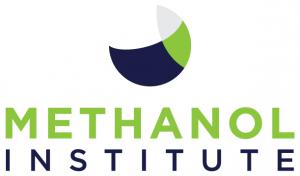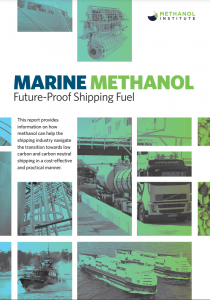Methanol Institute Publishes First Complete Guide to Methanol as a Marine Fuel
Tool to support decision-making on future fuel choices includes analysis and commentary on technical, commercial and operational aspects
Methanol has staked a significant claim to be among the serious fuel choices for vessel designers, owners and operators looking to make a start on their transition to sustainable operations”
WASHINGTON, DC, USA, May 30, 2023/EINPresswire.com/ -- The Methanol Institute (MI) has published the first comprehensive guide to methanol as a marine fuel. As the shipping industry continues its transition towards net carbon-neutral operations, owners are increasingly choosing methanol as a fuel that can help them progressively reduce emissions in line with regulatory targets.— Greg Dolan, CEO
‘MARINE METHANOL Future-Proof Shipping Fuel’ has been produced to help stakeholders across the industry access the information they need to support decision-making on which alternative fuel is right for their fleet.
Sections of the report address regulatory drivers, environmental performance, engines and fuel systems, bunkering, handling and safety characteristics, costs and pricing, availability and feedstocks for conventional and renewable product. Also included are case studies on first movers including AP Moller-Maersk, Waterfront Shipping, Proman Stena Bulk and the conversion of ropax ferry Stena Germanica.
The orderbook for methanol fuelled ships has grown rapidly with owners and operators specifying the fuel for use on ships from the largest containerships to small pilot boats. In between is the growing fleet of methanol carriers, bunker tankers, bulk carriers, heavylift vessels, cruiseships, ferries and superyachts.
Approved for use as fuel under the IMO’s IGF Code, the momentum for methanol as fuel has increased as studies, analysis and guidance - much of it supported by the Methanol Institute - has been published. This includes early guidance for bunkering operations developed with Lloyd’s Register and subsequent work with the ports of Shanghai, Singapore and Rotterdam.
Propulsion systems include tried and tested two-stroke main engines, four stroke units, and fuel cells using methanol for conversion to hydrogen. Main engine manufacturers report considerable order backlogs and are developing ever larger, higher capacity units. Studies and pilots continue to prove the effectiveness of converting smaller main engines to methanol operations.
“Methanol has staked a significant claim to be among the serious fuel choices for vessel designers, owners and operators looking to make a start on their transition to sustainable operations,” said MI Chief Executive Officer Greg Dolan. “While there won’t be a single decarbonization solution, it is clear that methanol has advantages that combine to provide a pathway to lower carbon and ultimately carbon-neutral operations; This report provides a clear roadmap for this journey.”
“Shipowners have recognised that methanol provides them with huge flexibility in introducing a low-pollution, lower carbon fuel which is closest to a drop-in available in the market,” said MI Chief Operating Officer Chris Chatterton. “The decision by more and
more leading shipping companies to adopt methanol as fuel signals that the industry recognises the need to start its transition to net carbon neutrality now; this publication can support their decision-making process.”
To download the guide, please click HERE.
Ends
About the Methanol Institute
The Methanol Institute (MI) is the global trade association for the methanol industry, representing the world’s leading producers, distributors, and technology companies. Founded in 1989 in Washington DC, MI now represents its members from five offices around world in Washington DC, Beijing, Brussels, Delhi, and Singapore.
MI serves its members as the voice of the methanol industry, representing companies within the membership to governments and businesses around the world to promote the sustainable growth of the industry. MI focuses on advancing the utilization of methanol as a clean fuel in energy-related applications such as land & marine transport, power generation, fuel cells, industrial boilers, and cook stoves. MI also supports sustainable and renewable process to produce methanol as a carbon-neutral chemical and fuel. For more information, please visit www.methanol.org.
Lawrence Navin
Methanol Institute
+1 703-248-3636
email us here
Legal Disclaimer:
EIN Presswire provides this news content "as is" without warranty of any kind. We do not accept any responsibility or liability for the accuracy, content, images, videos, licenses, completeness, legality, or reliability of the information contained in this article. If you have any complaints or copyright issues related to this article, kindly contact the author above.


